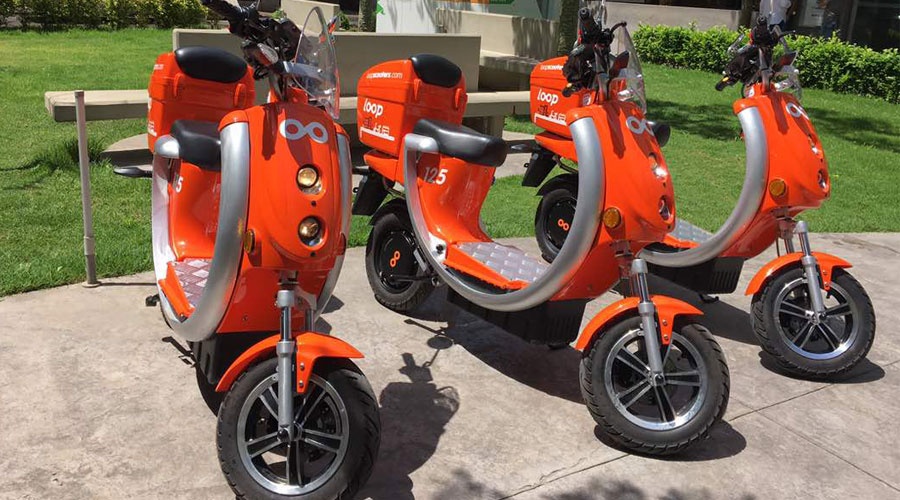Region’s first shared electric scooter service launched in Lebanon

In a country where public transport has always been a hassle, and where traffic jams are a daily companion, an innovative approach to transport is predicting a potential solution
Loop, a provider of shared fleet services and technology, soft-launched the first commercial electric scooter fleet sharing service, for the MENA region, in Beirut. The official launch is slated for July.
Green transport for Beirut
The concept was created by Vancouver-based Loopshare, founded by Lebanese expat Anwar Sukkarie. In 2015, Sukkarie presented his concept to Berytech Fund II, which was interested in the idea, and funded the project with $1.3 million. Driven by the objective to offer green and pollution-free transportation means in high traffic urban areas, Loop started deploying its electric scooters, which currently consists of 15 bikes available at the Beirut Digital District campus.
By July, the fleet will grow to 70 scooters, which will be available throughout 30 stations in high residential and corporate areas in Beirut, such as Hamra, Downtown, Ras Beirut, Ashrafieh, and Verdun. “Over the coming year, our objective is to expand to 300 scooters across 50-70 stations,” said Mira Raham, general manager of Loop.
How to use it?
Scooters’ usage is subscription-based, and the one-time subscription fee is $1. Users will have to download the Loop Beirut app on their phones and enter their personal and credit card details. They will be invited to an orientation session to brief them about the bike’s driving methods. The bikes do not require any special driving permits.
The bikes are equipped with telematics technology, and their top speed reaches 50 km/h. Each kilometer costs $0.7, and every parking minute costs $0.3. For instance, an average trip of one hour back and forth from the BDD to Hamra with parking, would cost around $4.7. According to Raham, this is cheaper than regular taxi services and Uber. All usage details will be invoiced by email to the user. “We will be introducing special packages and rates for daily, weekend, and monthly users.”
Target audience
Loop told Wamda that their target audience are entrepreneurs and people needing to run many errands. “Lebanese are known to prefer owning the stuff they use rather than sharing them,” said Raham. We thought this assumption would be a burden. In fact, this was not very true.” Within only few days of operation, the concept has managed to appeal to over 40 subscribers.
The somewhat reckless driving habits of many in the city though might be cause for many to be put off hiring a scooter. In order to prevent any occurring incident, Loop bikes come with a helmet. New drivers are also invited to benefit from a training course. The company also has driver and third party insurance.
Competition
Though not common in the Middle East, electric scooters are becoming trendier on a global scale. Ecooltra is an app with the largest fleet of electric scooters per minute in Europe, with over 1,000 scooters available. Berlin has Coup,a subsidiary of Bosch; Barcelona has Yugo; Brussels has Scooty; and Warsaw has Scoosh. Last week, 600 Gogoro Smartscooters were announced for Paris as part of the Coup eScooter sharing service. The craze is also rising in Asia, including China and Taiwan. The industry share report ‘Electric Motorcycles & Scooters Market Size 2016 – 2024’ by Global Market Insights, said that the market is expected to exceed $55 billion by 2024. Global consumption is forecast to be over 60 million units by 2024.
Expansion plan
Loop’s plans involve expanding towards other main cities in the country, in addition to tapping several Middle Eastern markets. “Beirut has been the first city to start deploying the technology, but we have agreements to launch the concepts in various countries worldwide, including China, Japan, Mexico, and the UK,” Raham said.


